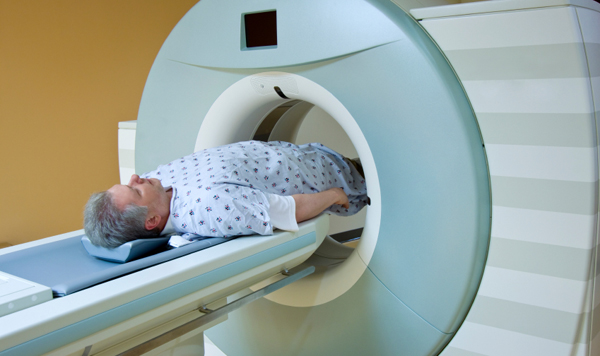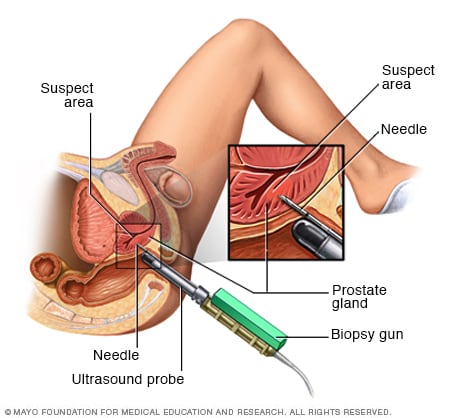Best Prostate Cancer Doctor In Mumbai - An Overview
Best Prostate Cancer Doctor In Mumbai - An Overview
Blog Article
Prostate Cancer Treatment: Surgical and Non-Surgical Approaches Explained
When faced with a prostate cancer diagnosis, the array of treatment options can seem overwhelming. This comprehensive introduction aims to shed light on the complexities of prostate cancer therapy, using understandings right into the intricacies of each technique to encourage people in making notified options regarding their wellness.
Surgical Therapy Options
When considering surgical treatment alternatives for prostate cancer, clients and health care providers usually evaluate the threats and advantages associated with different treatments,. One usual medical approach is extreme prostatectomy, which involves the removal of the entire prostate gland. This procedure is typically recommended for clients with local prostate cancer cells and supplies the possibility for a treatment. However, extreme prostatectomy can lead to negative effects such as urinary system incontinence and erectile dysfunction.
Another medical alternative is robotic-assisted laparoscopic prostatectomy, a minimally intrusive treatment that makes use of a robot system to aid the surgeon in removing the prostate. This strategy can cause much less blood loss, much shorter healthcare facility keeps, and much faster recuperation times compared to typical open surgery. However, it likewise lugs the threat of problems such as infection and injury to surrounding body organs.
Inevitably, the selection of surgical treatment for prostate cancer depends upon various elements including the phase of the cancer, the patient's overall health and wellness, and their choices relating to prospective side impacts and recovery times. Consulting with a multidisciplinary group including urologists, oncologists, and radiation oncologists can assist clients make educated decisions about one of the most suitable surgical approach for their individual case.

Non-Surgical Therapy Options
Taking into consideration options to medical interventions, non-surgical treatment alternatives for prostate cancer cells offer patients additional opportunities for managing the disease while minimizing prospective medical risks. One non-surgical strategy is Active Security, where patients with low-risk prostate cancer cells are kept track of very closely with routine check-ups, blood examinations, and biopsies, without undertaking immediate treatment. This approach intends to prevent unnecessary therapy and its connected negative effects, such as incontinence and erectile disorder.
One more non-surgical alternative is Radiation Therapy, which utilizes high-energy rays to kill cancer cells (best prostate cancer doctor). This therapy can be supplied externally using an equipment (External Light beam Radiation) or internally via tiny contaminated pellets placed near the lump (Brachytherapy) Radiation treatment can be made use of as a primary therapy or in mix with other therapies, such as hormonal agent therapy
Furthermore, Hormonal Agent Treatment is a non-surgical technique that aims to minimize the levels of male hormonal agents (androgens) in the body, as these hormonal agents can sustain the development of prostate cancer cells. By lowering or obstructing androgen degrees, hormonal agent treatment can reduce cancer progression and ease signs and symptoms in advanced cases.
Robotic-Assisted Surgical Procedure for Prostate Cancer

One of the essential benefits of robotic-assisted surgery for prostate cancer cells is its ability to decrease the threat of complications and negative effects typically connected with open surgery, such as blood loss, discomfort, infection, and expanded recuperation times. see post Clients undergoing robotic-assisted procedures usually experience much shorter medical facility keeps, much less postoperative discomfort, and much faster return to normal tasks. Additionally, the minimally intrusive nature of robotic surgical treatment usually causes smaller sized incisions, leading to enhanced cosmetic outcomes and lowered scarring for people. Overall, robotic-assisted surgery stands for a sophisticated technique to prostate cancer cells therapy that integrates technological advancements with medical knowledge to optimize individual results.
Radiation Treatment for Prostate Cancer Cells
Utilizing sophisticated radiation technology, radiation therapy plays an important function in the extensive therapy of prostate cancer. Radiation treatment utilizes high-energy radiation to damage cancer cells and diminish growths. It is an usual treatment alternative for prostate cancer cells, either as a key treatment or in combination with surgical treatment, hormone treatment, or chemotherapy.
There are two primary sorts of radiation treatment used for prostate cancer: exterior light beam radiation treatment (EBRT) and brachytherapy. In EBRT, a machine delivers radiation from outside the body to the prostate. This treatment is generally offered over several weeks, with everyday sessions lasting just a few mins (best prostate surgeon in Mumbai). Brachytherapy entails positioning contaminated seeds or resources straight into the prostate near the malignant cells. These seeds produce radiation that eliminates the cancer cells over time.
Radiation therapy for prostate cancer is extremely effective, with high treatment rates, particularly for local cancer. It is their website additionally a valuable choice for patients that may not appropriate prospects for surgical procedure. Like any therapy, radiation therapy may have negative effects, such as urinary system issues, tiredness, and skin inflammation, however these are usually short-lived and workable.
Hormonal Agent Therapy for Prostate Cancer
Hormone therapy is a frequently used treatment method for prostate cancer monitoring. Prostate cancer cells is usually fueled by the male hormonal agent testosterone. Hormone therapy, additionally called androgen starvation therapy, intends to minimize testosterone levels in the body or obstruct the hormonal agent's results on the prostate cancer cells, thus decreasing the disease's development. This therapy is specifically efficient in advanced stages of prostate cancer cells, where surgical procedure or radiation treatment may not be enough.
There are different sorts of hormonal agent therapy for prostate cancer, including drugs that lower testosterone degrees (such as luteinizing hormone-releasing hormone agonists and villains), or drugs that block testosterone from getting to cancer cells (like anti-androgens) Hormonal agent treatment can be used alone or in combination with various other therapies like radiation treatment, depending upon the phase and aggressiveness of the cancer.
While hormone therapy can effectively regulate prostate cancer cells development, it may include adverse effects such as warm flashes, loss of sex drive, impotence, and weakening of bones - best prostate cancer doctor. Normal surveillance and conversations with medical care service providers are crucial to manage these side impacts and ensure the therapy's performance
Final Thought
To conclude, the therapy alternatives for prostate cancer consist of medical and non-surgical methods such as robotic-assisted surgery, radiation therapy, and hormonal agent therapy. Each strategy has its own advantages and dangers, and the option of treatment depends on numerous elements such as the phase of cancer and general health and wellness of the individual. It is essential for patients to talk about these choices with their doctor to figure out the most suitable training course of activity for their individual situation.

Making use of innovative radiation modern technology, radiation treatment plays an essential function in the extensive treatment of prostate cancer cells. It is an usual treatment choice for prostate cancer cells, either as a main treatment or in mix with surgical treatment, hormone therapy, or chemotherapy.
Radiation therapy for prostate cancer is extremely effective, with high cure rates, specifically for local cancer.Hormonal agent therapy is a commonly used treatment approach for prostate cancer cells management.In final thought, the treatment alternatives for prostate cancer consist of non-surgical and webpage surgical methods such as robotic-assisted surgery, radiation therapy, and hormonal agent treatment.
Report this page